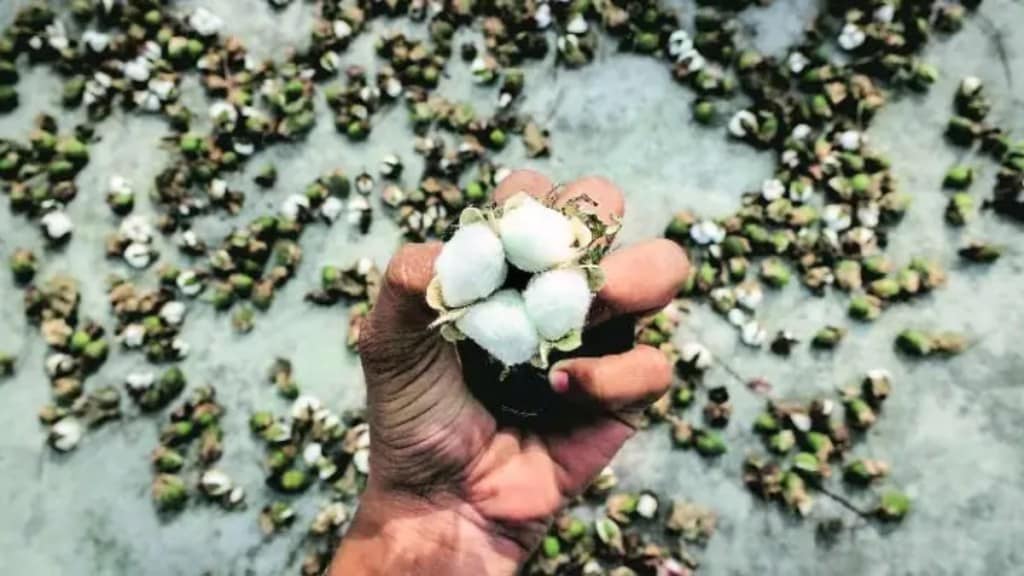The government’s decision to increase Bt cotton hybrid seeds price only marginally for the next kharif season (2024-25) season to Rs 864/pack is likely to hit quality seed supplies and financial viability of the seed companies, a senior official with the federation said.
“Because of a marginal increase in Bt cotton hybrid seeds prices, the seed companies are under stress and the financial viability of the business is challenged,” Ajay Rana, chairman, Federation of Seed Industry of India (FSII), told FE.
“Coming kharif season is going to be very challenging in terms of availability of the quality seeds and the supply situation of seeds would be tight,” Rana said. Seed industry sources said that many companies are leaving cotton seed business because of commercial unviability because of lower seed prices fixed by the government.
According to a recent notification by the agriculture ministry, the maximum retail price (MRP) of Bt cotton seed prices of Bollgard II variety has been fixed at Rs 864/pack of 475 gram each for the next kharif season (2024-25) . This is an increase of 1.3% from Rs 853/pack for the current season (2023-24). Industry had demanded atleast Rs 150/pack increase in Bt cotton seeds prices for the next season.
In the last seven years, while seed prices have increased at a CAGR of 1.75%, the increase in minimum support price (MSP) provided to farmers has increased by 7.8% annually during the same period., Rana said.
The industry association in its submission to the agriculture ministry had stated that increase in Bt cotton seed prices has been restricted to a very narrow range since 2016-17. It had stated that Bt cotton seed prices increased by 13.5% from Rs 751/pack in 2016-17 to Rs 853/pack in 2022-23.
Currently around 200 odd companies sell around 20 varieties of Bt cotton seeds. According to industry estimates, four companies – Rasi, Nuziveedu, Rasi and Mahyco have around 65% share in Bt cotton seeds business in the country.
Since its introduction two decades ago, Bt cotton has led to a dramatic rise in India’s cotton yield and thereby, production, but over the last few years, the yield has come down marginally.
Due to technological fatigue, investment by the companies in the varietal development has slowed down, according to industry officials.
According to the agriculture ministry, cotton production in 2023-24 is projected to be 32.3 million bales (170 kg each), which is a decline of 4% from the previous year. In 2019-20 season, cotton production was 36 million bales while its peak output was reported at 38 million bales in 2013-14.
In the 2020-21 crop year (July-June,) the agriculture ministry while fixing the price of a packet of Bt cotton-II abolished the trait value payable to the licence holders (Bayer-Mahyco), allowing reduction in the prices to the farmers. Bt cotton is still grown in around 92% of area under cotton of around 12-13 million hectare (mh) in the country.
Since the introduction of Bollgard-I, which was the country’s first genetically modified crop approved for commercialisation in 2002, followed by Bollgard II, a pest-resistant variety which protects the crop from bollworm, in 2006. The genetic engineering appraisal committee (GEAC), which functions under the environment ministry, has not approved any new varieties of cotton seeds.
Between 2002-03 and 2013-14, which was the ‘golden period’ of Bt cotton, yield rose by 167% and production by 316% while area under cotton cultivation expanded by around 39%. “What happened after that was a technology fatigue and there was no upgradation of varieties coming through the GEAC approval system,” Ram Kaundinya, advisor, FSII, had said earlier.


